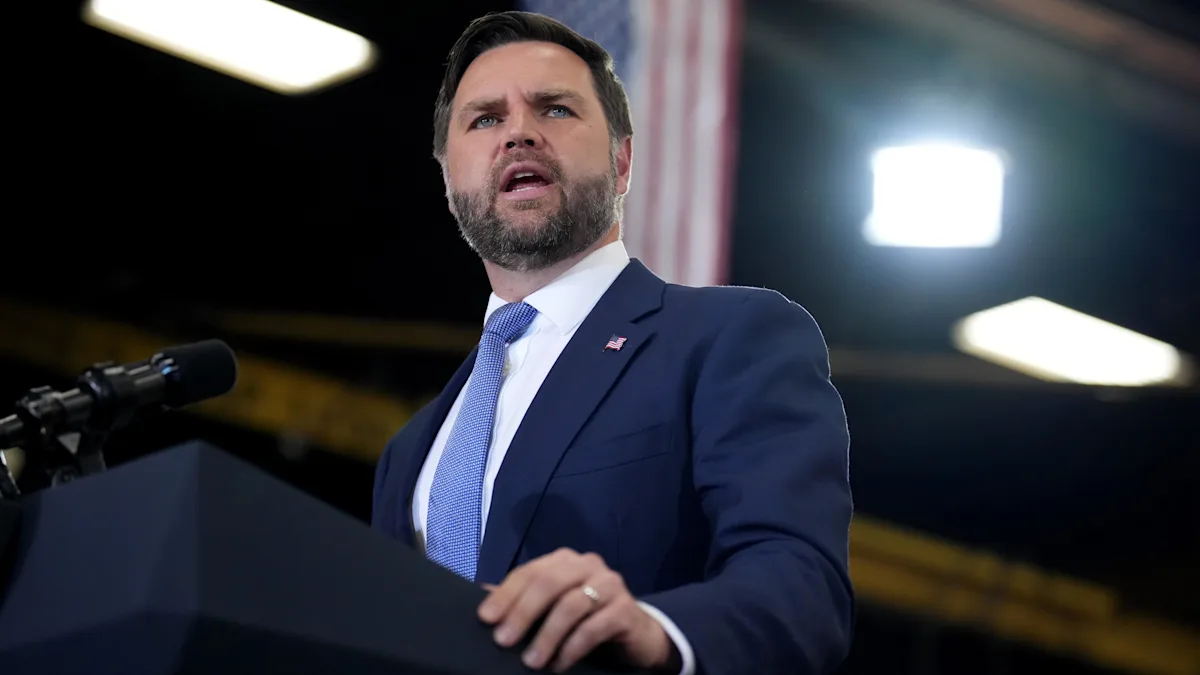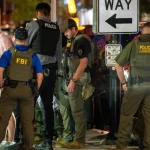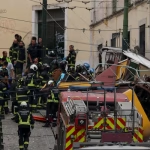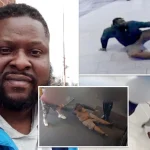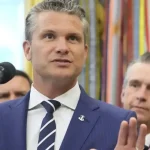In a political climate where crime, urban safety, and federal intervention remain hotly debated issues, recent remarks from Republican Senator JD Vance have sparked a wave of discussion across the nation. The senator clarified that there are currently no immediate plans for former President Donald Trump to deploy the National Guard to Chicago if he were to return to the White House. These remarks come at a time when the city of Chicago continues to battle crime surges, gun violence, and socioeconomic challenges that have made it a focal point in national debates on law and order. With Trump maintaining a strong presence in American political discourse and Vance emerging as one of his close allies, the senator’s statement is being dissected not just for its immediate implications, but also for what it reveals about the broader strategy of the Republican Party heading into the next election cycle.
- JD Vance’s Statement in Context
- The National Guard and Federal Intervention
- Chicago’s Ongoing Crime Challenges
- The Political Narrative Around Chicago
- Expert Opinions and Public Reaction
- The Trump Factor in the Crime Debate
- Legal and Constitutional Constraints
- The Broader National Implications
- Looking Ahead to the Next Election
- FAQs
- Why did JD Vance say there are no immediate plans for Trump to deploy the National Guard to Chicago?
- Has the National Guard ever been deployed to Chicago before?
- What are the main crime challenges facing Chicago today?
- Could Trump legally send the National Guard to Chicago if reelected?
- What alternatives exist to deploying the National Guard in cities like Chicago?
- Conclusion
JD Vance’s Statement in Context
JD Vance, the author turned politician who rose to prominence with his book Hillbilly Elegy and later with his successful Senate campaign in Ohio, has quickly become a trusted voice in conservative circles. His recent comments about Trump’s lack of immediate plans to send the National Guard into Chicago must be understood within a wider framework. Vance’s statement was not a dismissal of the city’s challenges, but rather an attempt to temper expectations and frame federal involvement as a matter of last resort rather than an imminent action.
His remarks also highlight an important strategic balance. On one hand, Republicans, including Trump, have long criticized Democratic-led cities such as Chicago for their struggles with violent crime. On the other hand, there is recognition that directly deploying the National Guard without local coordination could set off legal and political battles. Vance’s clarification seems designed to prevent such conflicts while still emphasizing the party’s commitment to addressing urban violence.
The National Guard and Federal Intervention
The question of whether the National Guard should be deployed to American cities is not new. Historically, the National Guard has been used in times of severe civil unrest, such as during the 1968 riots following Martin Luther King Jr.’s assassination, or more recently during unrest in Ferguson and Minneapolis. Deployments are often controversial because they blur the line between local governance and federal authority.
For Trump, discussions about Chicago have always carried symbolic weight. During his presidency, he frequently criticized the city as an example of Democratic failure, citing high murder rates and gun violence statistics. However, sending in the National Guard would require either cooperation with Illinois state leadership or invoking federal authority in a way that could trigger constitutional challenges. Vance’s remarks suggest that while the option remains on the table rhetorically, it is not the immediate strategy being pursued.
Chicago’s Ongoing Crime Challenges
Chicago remains one of the most scrutinized cities in the United States when it comes to crime. According to police statistics, while the city has seen some decline in homicides in recent years compared to its peak, the numbers remain troubling. In 2022, Chicago recorded more than 695 homicides, and in 2023, despite a slight decrease, the city still grappled with high levels of gun violence, carjackings, and organized retail crime.
Beyond the numbers, Chicago faces deep-rooted socioeconomic issues that fuel its crime problem. Poverty, lack of investment in certain neighborhoods, strained relations between police and communities, and the persistence of gang-related violence all create an environment that is resistant to quick fixes. Many experts argue that sending in the National Guard might provide temporary visibility but would not address the structural causes of crime.
The Political Narrative Around Chicago
Chicago has long been used as a political talking point by both parties. For Republicans, it symbolizes what they view as the failures of progressive governance—soft-on-crime policies, lack of police support, and poor community investment. For Democrats, Chicago is often portrayed as a city struggling under complex challenges that require nuanced solutions involving education, healthcare, housing, and policing reforms.
JD Vance’s remarks fall squarely into this broader narrative. By stating that Trump has no immediate plans to deploy the National Guard, Vance can reassure moderates and independents that Republicans are not rushing to impose federal force on local jurisdictions. At the same time, he signals to the conservative base that the problem of crime in cities like Chicago remains a priority that will not be ignored.
Expert Opinions and Public Reaction
Experts in law enforcement, constitutional law, and urban studies have weighed in on the debate. Many agree that deploying the National Guard should be a measure of last resort. Professor Michael Dorf, a constitutional scholar at Cornell University, has argued in the past that using federal troops in American cities without local cooperation sets a dangerous precedent. Similarly, criminologists have noted that while visible policing can reduce immediate violence, long-term solutions require addressing root causes like poverty, inequality, and lack of economic opportunity.
Public opinion on the matter is divided. Polling shows that while many Americans support strong measures to combat crime, there is also deep concern about militarizing city streets. In Chicago itself, community leaders have voiced skepticism about the idea of federal intervention, instead calling for more resources for schools, after-school programs, mental health services, and economic development.
The Trump Factor in the Crime Debate
Donald Trump’s legacy on crime and urban policy looms large over this discussion. During his presidency, Trump repeatedly criticized Chicago and its leadership, often highlighting its murder rate in campaign speeches. He positioned himself as a law-and-order candidate, and the rhetoric resonated strongly with parts of his base who felt that urban crime was spiraling out of control.
JD Vance, as one of Trump’s most visible allies, is navigating the delicate task of maintaining Trump’s strong stance on law and order while avoiding the political pitfalls of over-promising federal intervention. By clarifying that there are no immediate plans to send in the National Guard, Vance ensures that expectations remain realistic while keeping the door open for tougher measures if circumstances escalate.
Legal and Constitutional Constraints
One of the most important aspects of this debate is the legal framework governing National Guard deployment. Typically, governors control their state’s National Guard units, and federalizing them without state consent is highly contentious. The Insurrection Act of 1807 gives the president authority to deploy federal troops in extreme circumstances, but using it in Chicago would almost certainly provoke legal challenges and political backlash.
JD Vance’s remarks subtly acknowledge these constraints. By avoiding promises of immediate deployment, he sidesteps the legal complexities while still reinforcing the idea that Republicans are prepared to act decisively if the situation warrants.
The Broader National Implications
This debate is not just about Chicago—it is about the future of federalism, policing, and political messaging in America. If Republicans position themselves as the party of law and order, they must balance tough rhetoric with constitutional realities. For Democrats, Chicago’s struggles represent both a vulnerability and an opportunity to showcase alternative solutions rooted in social investment rather than military-style interventions.
JD Vance’s statement captures this tension perfectly. It reassures voters that Trump’s movement is pragmatic enough to understand constitutional limits while still framing urban crime as a crisis that cannot be ignored.
Looking Ahead to the Next Election
As the United States heads toward another pivotal election cycle, crime and public safety are poised to remain central issues. Chicago will likely continue to be a symbolic reference point in campaign speeches and debates. JD Vance’s remarks may well serve as a preview of how Republicans intend to talk about crime—serious about solutions, but cautious about federal overreach.
The political effectiveness of this strategy will depend on whether voters see it as credible and whether Democrats can counter with compelling evidence of progress in tackling crime without resorting to federal intervention.
FAQs
Why did JD Vance say there are no immediate plans for Trump to deploy the National Guard to Chicago?
Vance clarified that while Republicans remain deeply concerned about crime in cities like Chicago, deploying the National Guard is not an immediate plan. His remarks reflect both constitutional limitations and a desire to present the GOP as measured rather than reactionary.
Has the National Guard ever been deployed to Chicago before?
The National Guard has been deployed to Chicago in limited situations, such as during major riots and emergencies. However, such actions are rare and typically coordinated with state and local leaders. Deployments without local approval are legally and politically contentious.
What are the main crime challenges facing Chicago today?
Chicago faces persistent issues with gun violence, homicides, and carjackings. While crime levels have fluctuated, the city continues to struggle with deep-rooted problems like poverty, inequality, and gang-related activity that contribute to instability.
Could Trump legally send the National Guard to Chicago if reelected?
Trump could attempt to do so under the Insurrection Act, but such a move would likely face legal challenges. Normally, governors control their state’s National Guard, and federal intervention without consent raises serious constitutional questions.
What alternatives exist to deploying the National Guard in cities like Chicago?
Experts suggest that long-term solutions involve investing in education, mental health services, economic opportunities, and community policing. These approaches aim to address the root causes of crime rather than relying solely on heightened military presence.
Conclusion
JD Vance’s recent statement that there are no immediate plans for Donald Trump to deploy the National Guard to Chicago serves as a revealing moment in America’s ongoing debate over crime, governance, and federal power. While crime in Chicago continues to be a national concern and a political symbol, Vance’s remarks demonstrate a cautious approach that acknowledges both the seriousness of the issue and the constitutional limits of federal authority. The future of urban safety will not be decided by quick fixes or dramatic interventions but by the ability of leaders to balance law enforcement with deeper social investments. As the nation looks toward its political future, the conversation around Chicago will remain a powerful indicator of how America grapples with its most pressing urban challenges.


